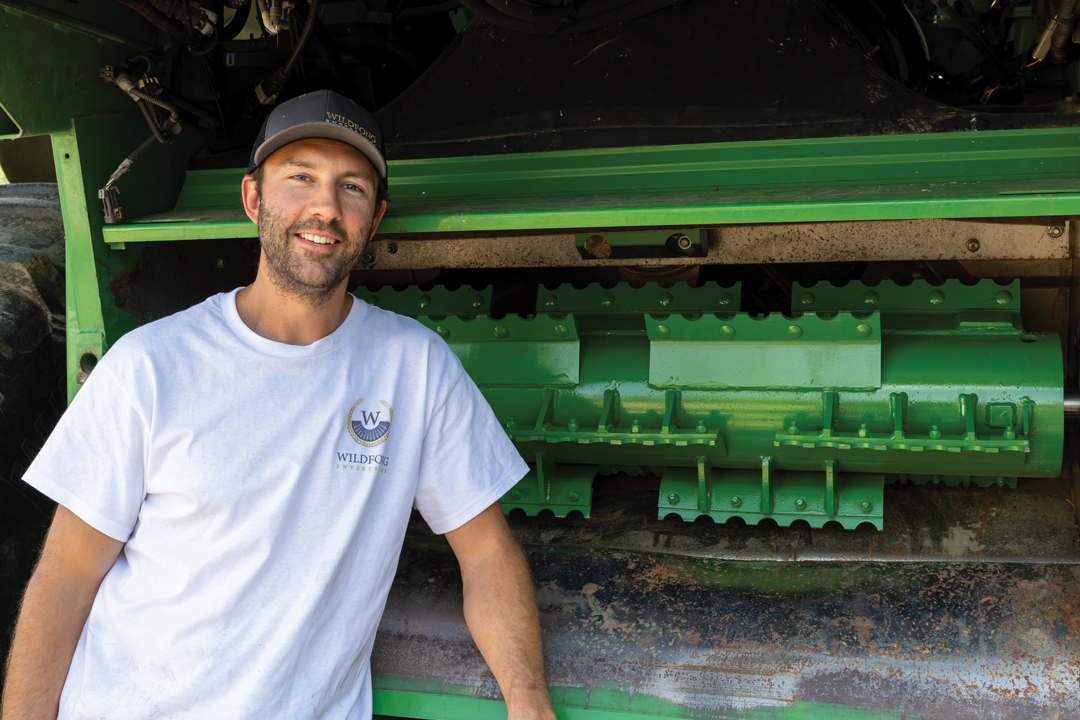TRUMP’S TRADE ASSUMPTIONS
BY NEIL TOWNSEND
There is an old joke about three people stranded on a desert island with a supply of canned food but no can opener. The first person, a physicist, suggests that to access the food they build a fire, place the can in the flames, and let it explode. The second person, a chemist, is appalled and suggests they use the power of sea water to corrode the can until it opens. The third person, an economist, scoffs at the other two ideas and says, “Let’s just assume we have a can opener.”
At first glance, Canadian farmers should be concerned about Donald Trump’s victory in the recent U.S. election. Canada is a trading nation, and its farmers rely on trade to sell their crops at a profitable return. Trump will retake office on Jan. 20, and has threatened to impose 25 per cent tariffs on all Canadian imports, including agricultural products.
Canadian farmers and politicians are deeply concerned about market access conditions over the next four years. Moreover, there are broad global implications and the potential for trade wars given Trump has proposed blanket tariffs, including up to 100 per cent on Chinese goods. The future of U.S. biofuel policy is also at risk. A shift away from ethanol and/or biodiesel could reduce a key demand driver and tilt balance sheets towards excess supply. Prices and farm gate returns may be hurt. It’s an amplification of political risk; more uncertainty in uncertain times.
However, most commentary about Trump’s victory has neglected a key reality: politics has been omnipresent in agricultural trade for centuries. Some would argue that politics, in fact, is the key variable determining agricultural trade flows. Agriculture was the last aspect of trade to be brought under the World Trade Organization. Still, there is an enormous number of restrictions on free trade in agricultural products.
Tariff and non-tariff trade barriers exist across the globe. Phytosanitary restrictions, sometimes legitimate but often designed to protect domestic farmers, limit market access or increase the cost of transactions.
In Canada, we often mistakenly assume foreign governments make market access decisions based on their feelings about us. In fact, domestic politics is a much larger consideration in foreign countries. For example, Canadian pulse farmers are subject to the whim of Indian policy on market access. Rather than think about Canada when it increases or waives a tariff, the government of India balances income and food security considerations. Indian politicians care about balancing these concerns because farmers and consumers in their country vote in local elections. The same is true in all countries.
Even in less than democratic nations, agricultural policy is a sensitive subject. One thing democracies and autocratic states have in common is that foreign policy is a tool to preserve or support domestic farmers.
The myriad protections in agricultural trade are labelled externalities. This means they are indirect effects of economic transactions that affect people not directly involved. A protection meant to preserve farm income may have the consequence of hurting consumers by increasing costs. Such externalities can be positive or negative. Their overall impact, however, is that they reduce efficiency and predictability. A central law of externalities is that if you remove or add one, there is no way to predict how the other externalities in the system will react.
What does this mean? First, we know there are many externalities in global agricultural trade. It is far from being “free.” Second, Trump is likely to introduce many further externalities into the global agricultural trade realm. Finally, trying to predict the outcome is next to impossible. There will be winners and losers and increased uncertainty. Canadian trade may shift away from existing markets toward new ones. Costs may increase or decrease. Things we once held to be true may no longer be so. But, unless you inherently associate uncertainty with a negative outcome, there is no guarantee Canada will be worse off. Canadians must be prepared for change and demonstrate resiliency. Simply put, let’s not assume we have a can opener.
Neil Townsend is chief market analyst with FarmLink Marketing Solutions.







Comments